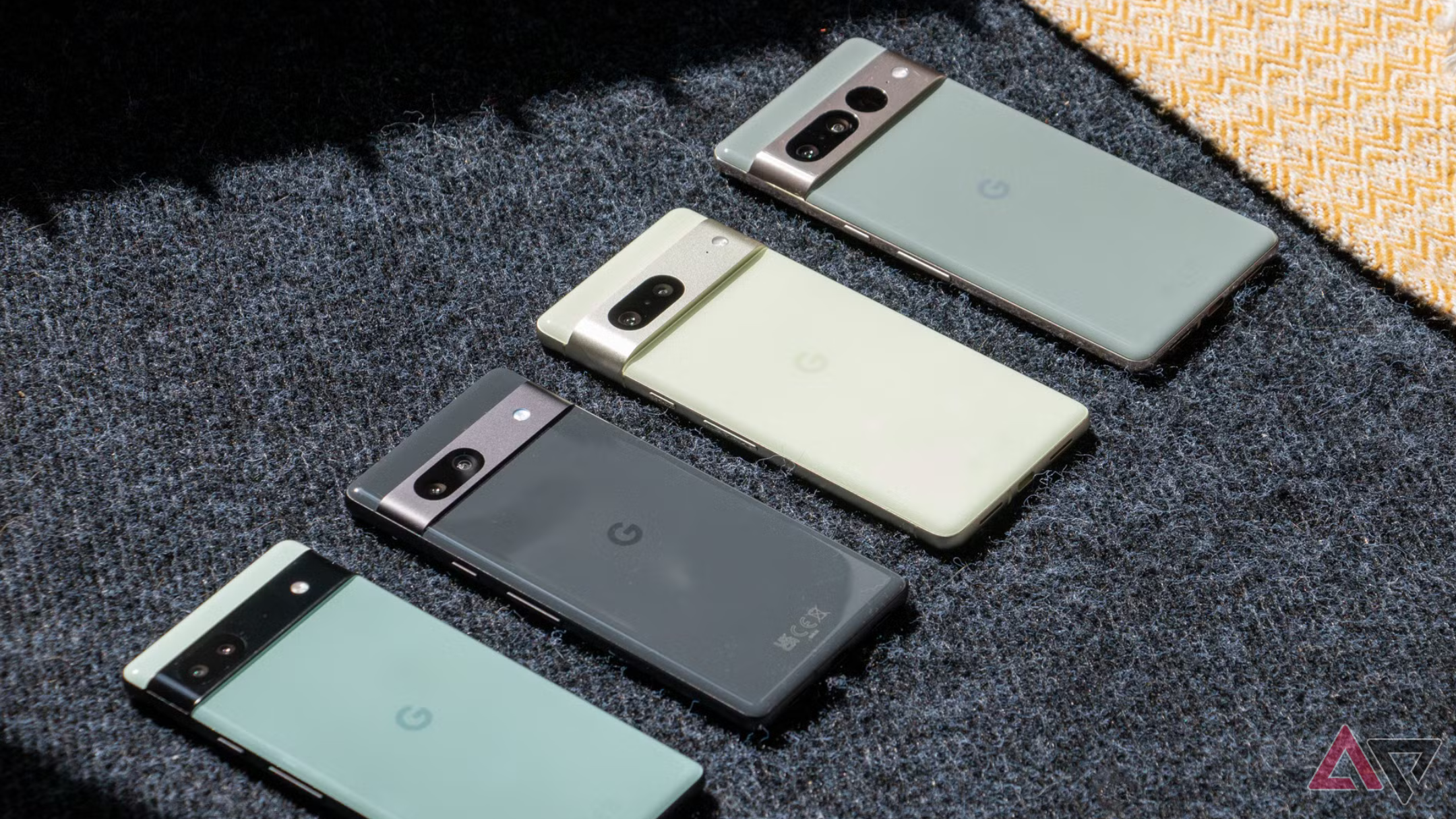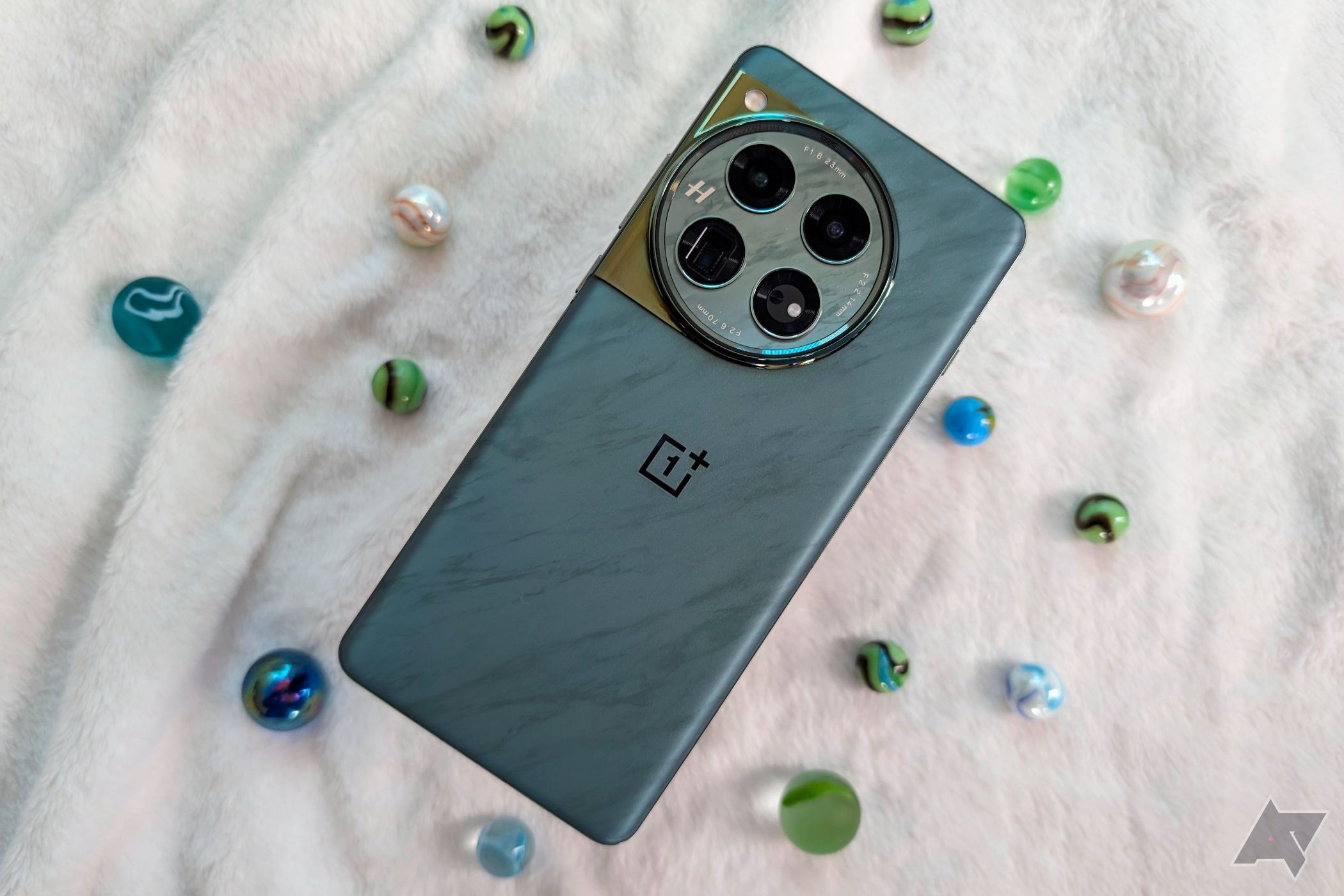Recently, my Pixel 8 developed a hardware fault. A line of pixels went dead, and the screen would occasionally become unusable as it flickered between a confusing mess of duplicated UI elements and random colors. Fortunately, this is a known issue by Google, which has offered an extended repair program to fix affected Pixel 8 devices. My phone carrier (Vodafone) confirmed this, and I duly transferred all my data to my backup phone (a Samsung Galaxy A35 5G) and sent my Pixel 8 off for repairs.
No Thanks, Keep Reading
A known hardware fault is not a good thing, regardless of how helpful Google and my carrier were in resolving the issue. Worse, it comes at a time when I’m considering switching away from a Pixel phone for the first time in seven years. Nevertheless, despite mounting problems with Pixel phones, I still can’t give my Pixel 8 up, even when a design fault makes it unusable.
The Pixel 8 strikes the perfect balance between features
It does everything great, but nothing is perfect

The vertical line issue on my Pixel 8
Some people pick a phone based on a single feature. Perhaps they want the best camera phone on the market, or a device capable of easily handling the most demanding Android games. However, most people require a phone that does lots of things well. For example, I enjoy taking photos on a night out, playing the latest Android games (I’m currently addicted to Balatro, our top Android game of 2024), flicking through my various social media apps, and streaming YouTube while I commute to work. I’m not a professional photographer, I’m not fussed about getting perfect performance on my games, and I don’t need a battery that’ll last me for multiple days. I just need a phone that doesn’t cause problems while I perform everyday tasks.
My first phone, the excellent Pixel 2 XL, did everything I needed it to without fault, as did my next, the iconic Pixel 6. The restrictive environment of iPhones has always frustrated me, and my biggest problem with my Samsung Galaxy A35 is the absurd amount of features Samsung packs into every corner of the phone. I just need a phone that works, and the Pixel 8 does this without fault. As we stated in our review, the Pixel 8 remains the Google phone for the masses.
However, I can’t help but think that the Pixel phones have lost the attraction that brought me to them in the first place.
Want a Pixel phone that “just works?” Look to the past, not the future
Feature bloat is an increasingly big problem with each new Pixel phone

One of the biggest attractions to Pixel phones is that they are the closest you can get to a stock Android experience. Unfortunately, the launch of the Pixel 9 suggests that this era is coming to an end.
While the Pixel 9 series seemed to just refine the hardware of the Pixel 8 series, they were updated with a wealth of AI features. Gemini is the default assistant, and Google has preinstalled AI-powered apps like Pixel Screenshots and Pixel Studio. A feature called Call Notes is meant to summarize calls, and the Pixel Weather app now uses AI to recommend appropriate clothing.
Technically, you can ignore all the above features, but as anyone who’s used an AI tool before, reliability is not its strong suit. Call Notes has frustrating restrictions, and the Pixel Studio app is largely useless for generating images. You can ignore the Pixel 9’s AI features, but the result would be a software experience nearly identical to the cheaper Pixel 8.

The AI bloatware era is here. With the Pixel 9, Google is the worst offender
The Pixel 9 series is loaded with AI apps you can’t uninstall
I also don’t feel like I’m missing out on new Android features by refusing to upgrade my Pixel 8, as its impressive software support means it will get new Android OS updates until October 2030.
But my Pixel 8 isn’t immune from new AI features. It constantly recommends I try out Gemini and AI wallpapers, and there’s no way to stop it. Plus, it looks like some of the Pixel 9’s exclusive AI features will come to the Pixel 8 anyway. Still, I won’t be switching to another phone soon. Here’s why.
Pixel phones offer the best Android experience on the market
Similar phones don’t compromise as well

The obvious alternative to a Pixel 8 is a Samsung Galaxy S23. Samsung’s 2023 flagship offers significantly more powerful hardware and better cellular and wireless connectivity. Its screen is just as good, and you can get similar results with its camera. However, I just can’t handle the Samsung feature bloat and newer phones like the Galaxy S24 have a similar AI experience as the Pixel 9. Plus, it only gets four years of Android OS updates.
Motorola’s software support is awful compared to Google’s, and while the OnePlus 12 is an impressive flagship, it’s got too many drawbacks, notably an inconsistent software experience.

6 reasons why the OnePlus 12 might not be for you
A few drawbacks of the OnePlus 12 that you should know about
I’ll hold onto my Pixel 8 for as long as I can
I’m not the only one who thinks the Pixel 8 is the best all-rounder. Before leaving for new pastures, our ex-Google Editor Manuel Vonau stated that after reviewing flagship phones for 5 years, the Pixel 8 offers the best balance between features.
Thus, despite hardware faults, AI bloat, and a chipset that doesn’t hold up against the competition, I’ll only give up my Pixel 8 when there’s a better all-rounder on the market. And judging from the most recent generation of Android phones, I’ll be waiting a long time.

